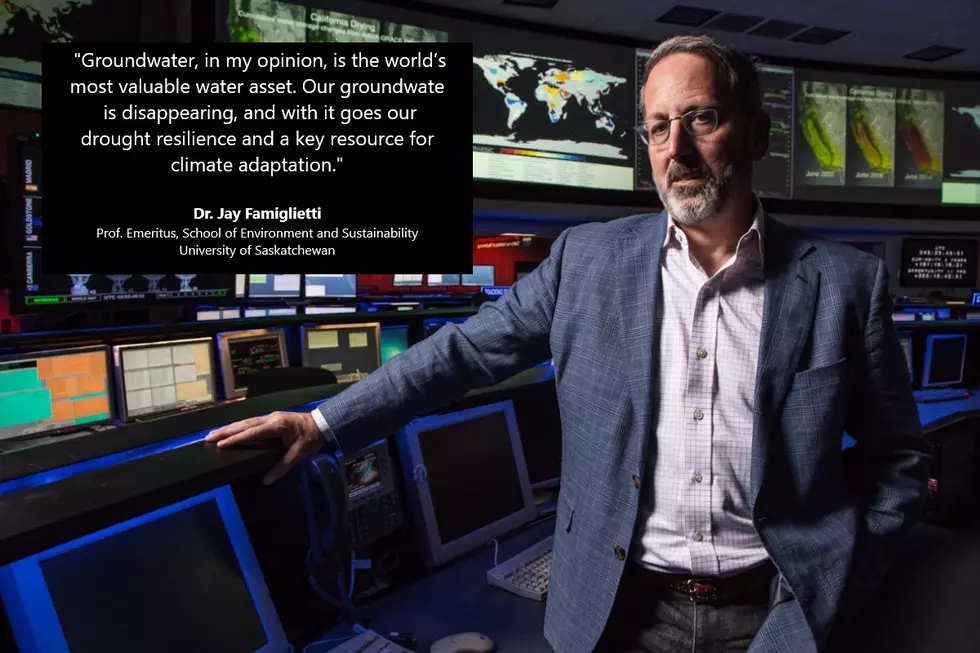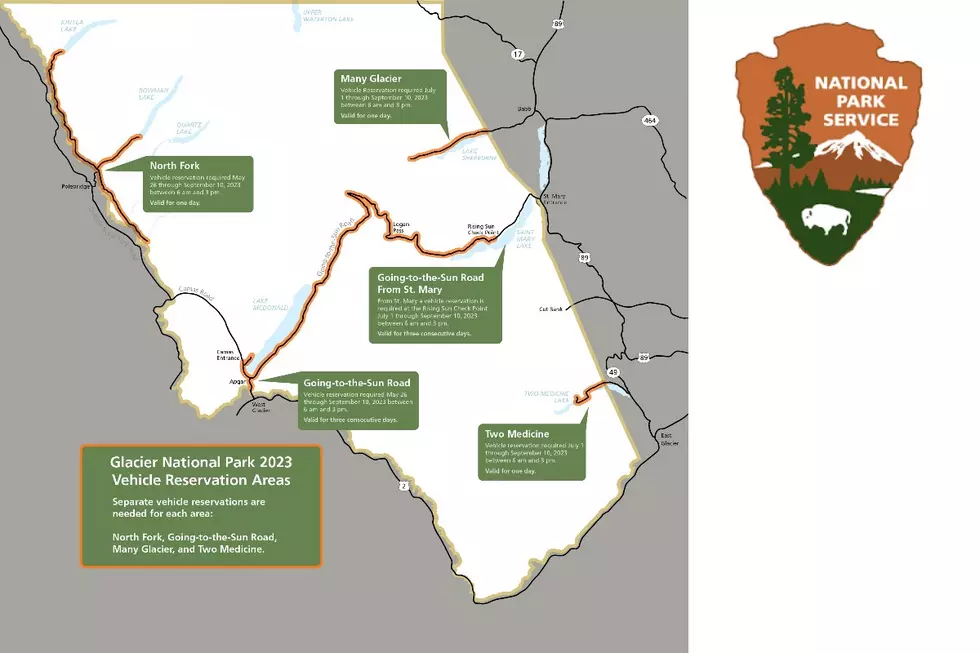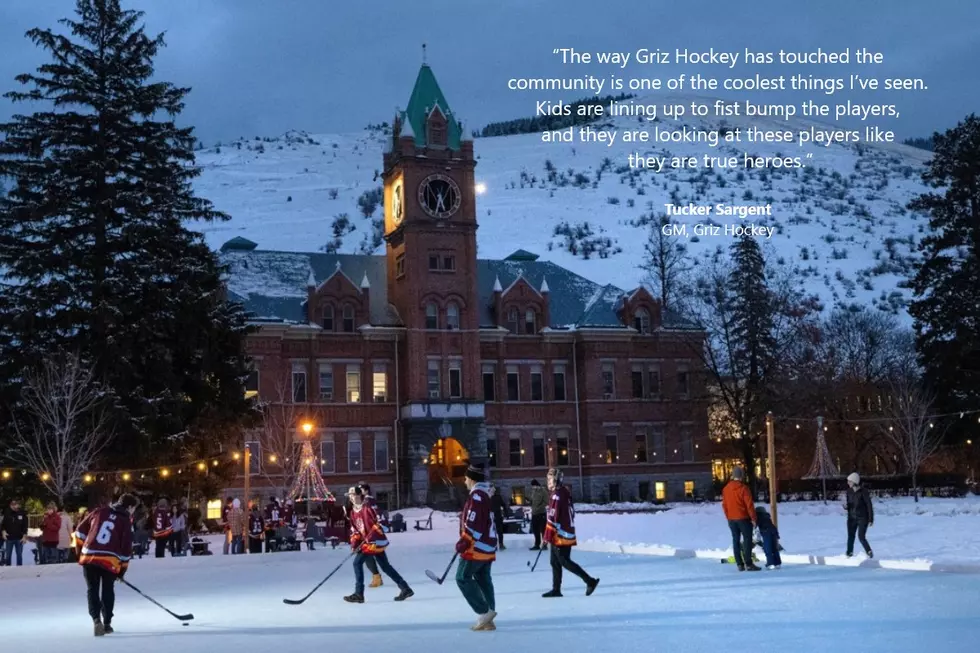
Griz Chat: Expert to Address the Good, Bad and Ugly of Global Water Crisis (ZOOM Link Available)
MISSOULA – Hydrology Professor Jay Famiglietti isn’t hesitant to make waves when it comes to speaking out about the state of the world’s fresh water.
When asked about the global water crisis in the 2011 documentary “Last Call at the Oasis,” Famiglietti’s responded “we’re screwed.” That warning became a tagline for the film and an encapsulation of the attitude many continue to have about water.
Over a decade later, conditions are more dire. But the situation isn’t hopeless. The causes for both hope and alarm will be the subject of Famiglietti’s Thursday, Feb. 9 talk at the University of Montana, “Changing Freshwater Availability as Viewed from Space: The Good, the Bad and the Ugly.”
Part of UM’s President’s Lecture Series, the event will be held at 7:30 p.m. in the University Center Theater and on Zoom. It will serve as the 2023 Brennan Guth Memorial Lecture in Environmental Philosophy. The talk is free and open to the public. Register in advance to attend via Zoom.
Famiglietti uses satellites and computer models to track how fresh water availability is changing. His talk will offer a candid look at the state of the global water supply and reveal how better understanding it could help combat the crisis.
“There is far greater social and political awareness of the need to take action on water issues today compared to a decade ago,” Famiglietti said. “I would probably say, ‘We are thoroughly and completely screwed unless we get right on this today.’”
In the years since Famiglietti’s warning, he’s continued to lend his expertise on television programs like “60 Minutes” and “Real Time with Bill Maher,” hosted an award-winning science podcast and been featured in dozens of international news articles, including The New York Times, the Washington Post and The Guardian.
Famiglietti recently began a new position as a Global Futures Professor in the School of Sustainability at Arizona State University. He previously served as executive director of the Global Institute for Water Security at the University of Saskatchewan and was the senior water scientist at the NASA Jet Propulsion Laboratory, among other roles.
The President’s Lecture Series brings the community together to learn and discuss issues that stir public conversation. Famiglietti hopes the audience will leave thinking about where their water comes from, how those sources are at risk due to climate change and over-exploitation, and what that risk means for the future.
“We can no longer take water security – that we will always have enough water to do all the things that we want and need to do – for granted,” he said.
In anticipation of the upcoming event, Famiglietti spoke with UM News to preview his talk.
UM News: How has studying water changed the way you think about it in your everyday life? Has researching water amid a time of crisis impacted how you see the world?
Today I have a far deeper appreciation for the importance of water to my life, and to everyone’s everyday lives, than I did 20 years ago. When my wife and I walk our dog along the Saskatchewan River each morning, I think about how that river sustains everything that has happened and will ever happen in the city of Saskatoon.
To preview some of the ugly part of my talk, sadly, I see much of our physical water crisis – that is, the patterns and pace of changing water availability – as being rooted in greed. That’s the same greed that has led to the climate crisis. On this point, I am deeply cynical.
However, today I understand that we are not going to move the needle on global water security without deep industry engagement. Over the last couple of years, this has become my new mission.
UM News: What do people misunderstand about water? What should they know?
There is not an infinite supply, and there are no new, mythical, enormous sources of pristine water out there waiting to be discovered. We need to stop thinking about supply-side solutions and focus on the more difficult, demand side: far greater efficiency across all sectors, greatly enhancing recycling and generally working toward using less water and using it with far more care.
There is a second key point, and that is groundwater. Groundwater, in my opinion, is the world’s most valuable water asset. Our groundwater is disappearing, and with it goes our drought resilience and a key resource for climate adaptation. If we valued water the way we value oil, and we should, this would never be allowed to happen.
UM News: The state of our water and how it could impact the future may, to some, seem too complex of an issue to truly understand. Others, such as those living in places like Montana that receive a relatively steady amount of precipitation, may feel disconnected from the issue. Why is water important enough that everyone should care?
First, no region on Earth can escape the impacts of climate change, and that includes Montana. There is no reason to expect that the flows in Montana’s rivers, large or small, or the moisture levels in its soils, will not be impacted. This is everyone’s issue.
A second factor to consider is how water is critical to food and industrial production. I’m betting that if I went into any local supermarket, like Albertsons, that I would find produce from California or Mexico or Peru, all of which are water stressed. When these places run out of water, you will feel it here, through shortages and higher prices.
The world is extremely interconnected today, and water is one of the key threads that weaves us together.
UM News: What can people do to be a part of the solution? Where does change realistically need to come from?
Well, taking shorter showers isn’t really going to get it done.
Today, I encourage people to hold their elected officials accountable for their water platforms. What are their plans to deal with climate change and its impact on Montana’s surface and groundwaters? Given these realities, how will these supplies be protected and sustained for generations to come?
This goes hand-in-hand with the theory of change. It won’t happen unless we, collectively, ask for it. We need to protect our waters because they can’t protect themselves, and there are hundreds of thousands of players out there willing to take advantage of that – but with consequences that impact billions of people.
- by Abigail Lauten-Scrivner, UM News Service -









